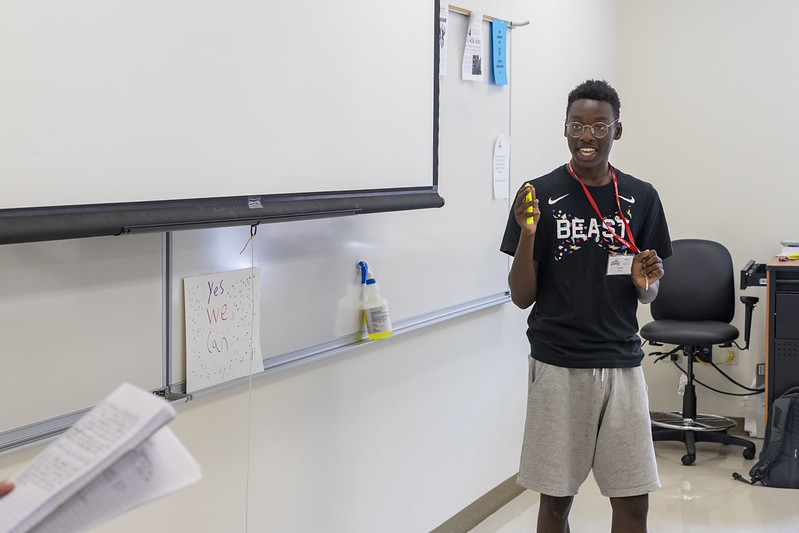
By The Duke Talent Identification Program
It is commonly believed that leaders are born, not made. In fact, leadership is nurtured and developed. It does not “happen.” So, don’t wait for your child to emerge as a leader. Develop leadership capacity in your child by encouraging and providing opportunities for him or her to learn leadership skills and to use them in various settings.
Myths keep parents from seeing their children, and children from seeing themselves, as leaders. Keep the following in mind: He doesn’t have to be elected to be a leader. She doesn’t have to come from a particular school or community to be a leader. She doesn’t have to be popular to be a leader. He doesn’t have to be a leader in school.
Seek out opportunities for your child with a focus on leadership.
Who needs leadership training? All children do, because they will be leaders in their own families and may be in the organizations they join and the occupations they pursue. Young people, and certainly gifted and talented children, should be prepared to be effective leaders in government, business and industry, education, the arts and humanities, and other fields.
What skills do young leaders need to develop to build leadership capacity? Leaders must set goals, design plans to reach them, work with others to carry out the plans, and assess progress. The critical skills include
- planning;
- communication (by written, oral, and nonverbal means and by listening);
- problem solving; and
- decision making.
What does leadership training include? It focuses on skill development, practice in using these skills in different situations, and discussions of leadership. Simulations provide opportunities to use leadership skills in a risk-free environment and to discuss what happens and why. Videos that focus on leadership are a springboard for examining effective and ineffective implementation of these skills. Biographies of and the writings of leaders, male and female and from diverse cultures, can be rich sources of information as well.
Leaders, like most people, become increasingly effective by receiving feedback on their performance. Athletes who receive continuous feedback on their swings, their shots, or their punts, for example, may adjust accordingly and do better the next time. Leaders respond in the same way. Effective leaders also analyze their actions and reflect on how they can improve on them in similar situations.
Where do you go for leadership development? Schools may provide leadership training, such as seminars or academies during the summer, holidays, or weekends. Colleges and universities also offer programs in leadership training. The Boy Scouts, the Girl Scouts,
4-H, religious groups, and many other organizations provide a focus on leadership development. Keep in mind that belonging to such a group may not help your child develop leadership skills unless there is a specific focus on leadership. Shadowing leaders in school, the community, or an organization may allow your child to observe and then process the impact of leadership skills in action.
Leadership is more than occupying a position.
From engaging in leadership training, assuming leadership positions, and initiating leadership projects, your child will gain the confidence to be a leader, to improve his or her leadership abilities, and the opportunity to get acquainted with individuals who can be role models and mentors. Eventually, it will be critical to be able to list leadership and service experiences on college and scholarship applications. Your child will be ready to use these skills when he or she is in college and thereafter will be ready to be an effective leader in his or her career.
Never underestimate your child. He or she can be a leader. Remember that most accomplished leaders have developed their leadership capacity by taking advantage of opportunities to learn how to become effective leaders and then finding or creating situations in which to practice leadership skills. Developing leadership potential is critically important for your child and for the future of our communities, states, nations, and world.
—Julia Link Roberts, Ed.D.
Julia Link Roberts is founding director of the Center for Gifted Studies and professor of teacher education at Western Kentucky University.
Leadership course studies and activities often include
- qualities of leadership
- teamwork skills
- keeping a leadership journal
- examples of leadership
- theories of leadership
- the role of leadership in organizations
- community service
- situational leadership
- authority versus influence
- ethics, values, honesty, and integrity
- communication styles
- conflict management and resolution
- gender and cultural differences
- risk taking
- team building
Reading
- Leadership for Students, by Frances A. Karnes and Suzanne M. Bean, Prufrock, 1995
